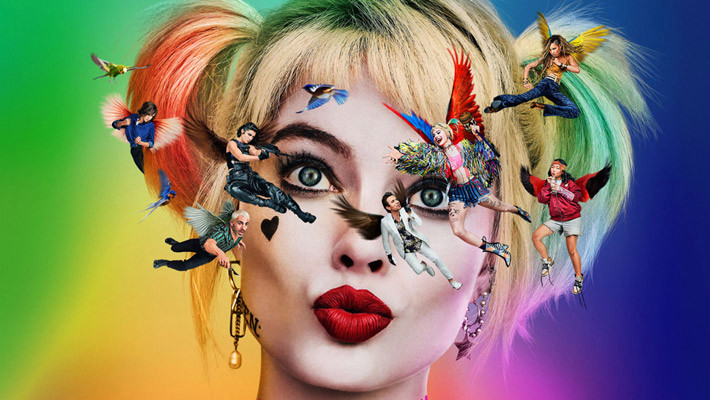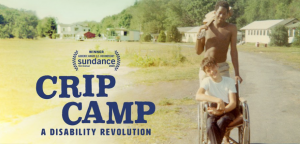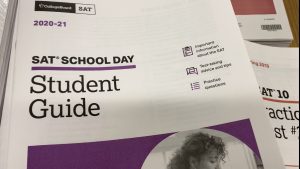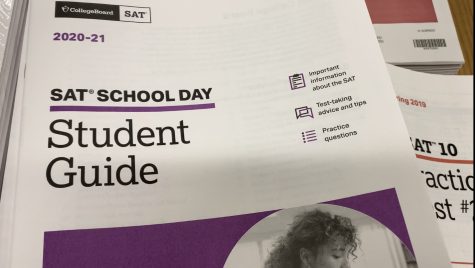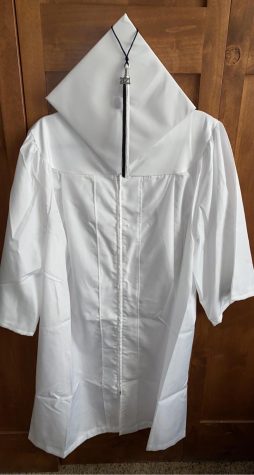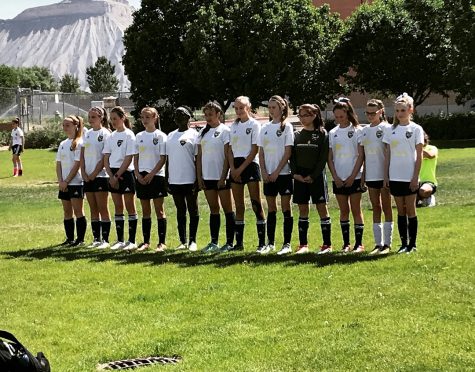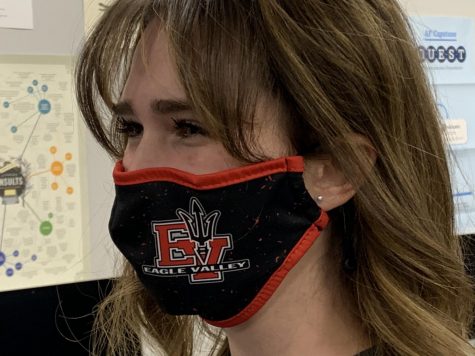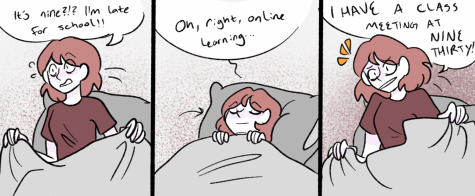Birds of Prey: A Fun, Meaningful Comic Book Story
February 13, 2020
Birds of Prey (and the Fantabulous Emancipation of One Harley Quinn) is the highly anticipated sequel to 2016’s Suicide Squad centered around the best part of that movie: Margot Robbie’s eccentric antihero Harley Quinn. The movie centers around Harley’s breakup from the Joker and her team-up with several other female heroes to protect a young girl from the evil Black Mask. At its core, this movie is about empowerment and finding oneself when the constants in life (boyfriends, jobs, families) disappear. While it may not meet the highs of Wonder Woman, DC’s Birds of Prey is an incredibly enjoyable movie that feels particularly relevant in the modern era.
The movie begins with Harley’s breakup from the abusive Joker (who thankfully never appears on screen after the horrible portrayal of the character in Suicide Squad) and her discovery that every bad guy in Gotham City wants her dead. Her paths eventually cross with the young Cassandra Cain, a pickpocket who unwittingly became embroiled in a crime syndicate’s scheme to take over the city. Led by the Black Mask in an incredible and terrifying performance by Ewan McGregor, the crime ring will stop at nothing to see Cassandra dead. Harley eventually unites with other women from around Gotham, including such comic book heroes and villains as Black Canary, the Huntress, and Renee Montoya, to protect Cassandra and stop the Black Mask’s plan.
Although the premise of the film may sound like a cheap way to capitalize off of modern feminism without offering much empowerment, Birds of Prey is more alike to Wonder Woman than the utterly forgettable Captain Marvel in the way that the characters feel fully fleshed out and the story always feels real. The film is never pandering and empowers in the ways that actually matter. This is how female-led action films should be: amazing and so genuine that it never feels like Hollywood is trying to cash in on liberal viewers or capitalize off of representation alone.
The movie itself is truly about its namesake, Harley Quinn, and her emancipation from the Joker. Suicide Squad drew much criticism for the way that it seemed to romanticize some of the most toxic and abusive parts of Joker and Harley’s relationship, but Birds of Prey makes sure to make clear that Harley is a person outside of that relationship and that it was fundamentally wrong. While the Harley Quinn in Suicide Squad was subservient and clingy, the Harley Quinn in Birds of Prey is powerful and relatable. This movie is about this shift in Harley’s character and her transformation from doting girlfriend to an independent, headstrong woman. At the end of the movie, when she gets within inches of killing Black Mask, Harley exclaims, “I’m the one they should be scared of. Not you, not Mr. J. Because I’m Harley Freaking Quinn.” The movie is about Harley finding herself and becoming her own person, and the audience is just there to watch the fun, “fantabulous,” ride.
One of the more interesting and terrifying parts of the film that pushes the plot forward is the character of the Black Mask. He is everything that Harley and the rest of the Birds of Prey stand against: an evil, misogynistic villain that does everything in his power to degrade and exploit those around him. One of the most heavy and horrifying scenes in the film comes when he publicly humiliates and objectifies a random girl and his nightclub, showing in full effect how evil this villain is. In setting him against Harley and her crew, the filmmakers make their message abundantly clear: no one should be forced to serve others, particularly men, that are so toxic and rid others of their self identity. This movie is about the importance of becoming your own person, and the Black Mask and his plans are the antithesis of that. This villain is terrifyingly memorable, and is very effective in helping convey the movie’s message.
Another part of this movie that benefits the storytelling of the film is its R rating. This movie is about a mentally unstable antihero getting over her psychotic, abusive ex while trying to stop a crime ring from killing a little girl. Had the filmmakers tried to make this movie PG or PG-13 like other superhero films, the story would not have worked. The movie’s message is conveyed through bloody violence and cussing, and these components in the film make the story somewhat believable. Harley Quinn cursing her heart out while bashing bad guys heads in is the essence of her character, and shows how far she has come from Suicide Squad. This movie is well-served by the filmmaker’s choice to make it more adult, and the story is told much better than it would have been otherwise.
Technically, what stands out about Birds of Prey is the use of color. Instead of the drab, dark Gotham City that is seen in more recent adaptations of DC comics, Birds of Prey is alive with color and light. Harley’s raid of the police station with a gun that fires colorful smoke and the climax fight scene that takes place in a carnival funhouse stand out as some of the most creative action scenes in any recent superhero film. The whole movie is much more engaging for its vibrancy, and the visuals of the film are sure to stick with audiences long after they leave the theater.
Another technical component that makes Birds of Prey work is the frantic camera work of the film. This movie is about Harley Quinn, a character known for her mental instability and manic personality. The camera work of the movie follows suit. From fading in and out of a fight scene to a hallucination of a dance number to the amount of movement of the camera in the carnival funhouse, the cinematography of Birds of Prey alone Conveys Harley Quinn’s crazy. This movie is a clear example of camerawork adding to the audience’s view of the main character, and serves the story very well.
Overall, Birds of Prey is a great movie. Of course, it’s not Wonder Woman and it won’t win any Oscars, but it is memorable and fun while conveying a positive message. It is a far cry from the misogynistic, problematic tendencies of DC movies in recent years between Harley and Joker’s relationship in Suicide Squad and the Joker movie itself, and is well worth the price of admission. Empowering without being pandering, Birds of Prey (and the Fantabulous Emancipation of One Harley Quinn) will likely go down as one of the best, if not the best, superhero flick of 2020.

